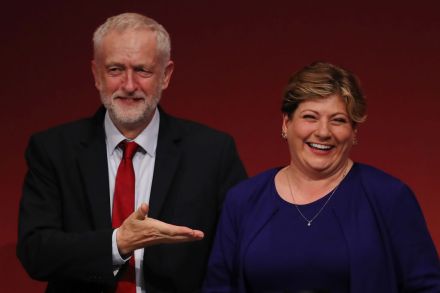Jeremy Corbyn could learn a lot from Emily Thornberry’s PMQs performance
Today was a reminder of the lost art of how to construct a series of questions at PMQs. Emily Thornberry started off by asking Damian Green if he was prepared to be held to the same standard as he held government ministers when he was in opposition. Sensing a bear trap, a clearly wary Green rose to answer—and you could see he was dreading the prospect of five questions on the Cabinet Office’s investigation into his personal conduct. But Thornberry’s follow-up was cleverer than that. She instead asked him a question about retention rates among nurses that he had asked John Prescott 17 years ago. Predictably, Green had no answer.




















